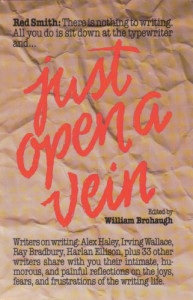Category Archives: internet
Social Networking Showdown
At Left Coast Crime a few weeks ago, I was part of a great panel on utilizing the Internet to market your book. This is a bit of a double-edged sword: now that much of the marketing burden falls on authors’ shoulders, being able to reach people without an insanely expensive direct mailing is invaluable. However, online networking can also become a tremendous time suck, drawing valuable hours away from what writers should primarily focus on: their manuscripts. Today I’ll discuss which sites I’ve found most valuable in a head-to-head match up, as well as sharing how I stay on top of them without losing my mind.
I confess to being one of the “old people who joined up and ruined Facebook.” I now have more than a thousand friends, and probably post something to the page once or twice a week. I’m also on MySpace, but have found Facebook to be far more user-friendly to someone as technologically challenged as myself. (However, if I was working on a YA novel, MySpace would probably be where I devoted more of my focus). A couple of things to bear in mind when using these or other social networking sites:
- Public vs. Private: I keep my pages public, and will friend anyone who asks. So anything that’s truly personal, such as family photos, etc, doesn’t get posted there. And if anyone tags me or mine in such a photo, I immediately remove the tag.

- In order to maintain my sanity, I go onto each site once a week (Facebook on Mondays, MySpace on Tuesdays). That’s when I accept friends, answer emails, and respond to comments. If I stumble across an interesting article online, I have the “share on facebook” tab incorporated into my browser, which makes it oh-so-easy to post it to my page (another clear benefit of Facebook over MySpace).
- The cocktail party rule: I rarely post anything political on any of my pages. Again, this is a matter of personal preference, but I would rather discuss my books or interesting developments in publishing than who I voted for.
Shelfari vs. GoodReads
 The trick to these is joining groups that read books similar to yours. I’ve generally found Shelfari to be more useful, although I do get updates from GoodReads discussions as well. The Shelfari groups just seem to more active, especially the “Suspense/Thrillers” one, which graciously invited me to lead a discussion of Boneyard last August. Every so often I’ll remember to log in and update my home page with the books I’ve read recently.
The trick to these is joining groups that read books similar to yours. I’ve generally found Shelfari to be more useful, although I do get updates from GoodReads discussions as well. The Shelfari groups just seem to more active, especially the “Suspense/Thrillers” one, which graciously invited me to lead a discussion of Boneyard last August. Every so often I’ll remember to log in and update my home page with the books I’ve read recently.
- One caveat: if I don’t like a book, I don’t review it, period. Other authors have no problem posting negative reviews, so it’s largely a matter of personal
 preference. But I know authors whose feelings were hurt when one of their peers negatively reviewed their book on these sites, and figure it’s better to follow the, “if you can’t say something nice, don’t say anything at all” rule. The crime fiction writing community is a small one, filled with people who possess an encyclopedic knowledge base of how to kill someone and get away with it. Bear that in mind when you’re considering giving a book one star out of five.
preference. But I know authors whose feelings were hurt when one of their peers negatively reviewed their book on these sites, and figure it’s better to follow the, “if you can’t say something nice, don’t say anything at all” rule. The crime fiction writing community is a small one, filled with people who possess an encyclopedic knowledge base of how to kill someone and get away with it. Bear that in mind when you’re considering giving a book one star out of five. - I join in whenever people are discussing a book I really enjoyed, or an author whose work I admired. After all, I’m a reader as well as a writer.
- Be careful in how you participate. When someone I’ve never heard of joins one of the discussions and proceeds to blatantly flog their own work, it’s a huge turn off. Probably better not to participate than to do that. This isn’t to say that you should never mention your book- but other members will be more receptive if you’re someone they’re already familiar with.
 I’m not a big tweeter. I post links to my Kill Zone posts (and guest posts,) and occasionally link to articles or posts that I found interesting, but I simply don’t have time to announce what I had for lunch every day.
I’m not a big tweeter. I post links to my Kill Zone posts (and guest posts,) and occasionally link to articles or posts that I found interesting, but I simply don’t have time to announce what I had for lunch every day.
I know other crime fiction authors love Crimespace, but I haven’t used it much. Most of the Ning circles (and I’m part of five) don’t seem very active to me. This could be my own failing- I find them challenging to navigate, and frankly my other pages are so easier I forget about these. Same goes for Gather, Bebo, Linked In, etc. You might have better luck. If you write books with a Siamese Cat sleuth, and there’s a Siamese cat appreciation group on one of the social networks, by all means take advantage.
Newsletters:
I have a pet peeve. Say we met at a conference and chatted about marketing. I offered to continue the discussion by email. Then, I find myself getting a deluge of newsletters from you, none of which I signed up for. Or worse yet, you mined my email address from a mass email sent by a mutual friend (note: always bcc people on those emails). This has happened to me more times than I can count. DO NOT add people to your newsletter unless they have specifically asked to be included. Have a sign up sheet on your website, and make it easy for people to unsubscribe.
And that’s my two cents. So what have the rest of you found to be useful? Any tips to share?



